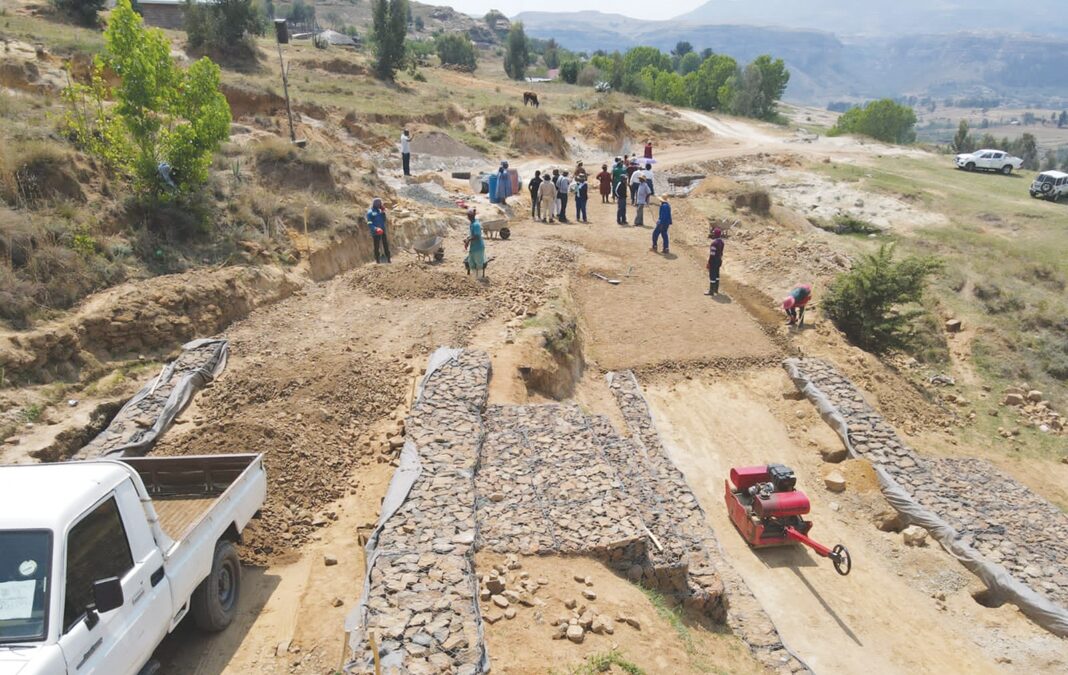The catchment manager at Hlotse Priority Sub-catchment Phomolo Khonthu of Khalahali in Berea recently passed knowledge on maintaining natural resources, farming and range management to the community of Menkhoaneng in the Leribe district.
This comes in the wake of a study that found that some communities in the area do not have sufficient knowledge on managing natural resources.
With his skills and being a catchment manager Khonthu, said the community was taught the concept that managing the natural resources well will bear fruits for a long period of time.
Khonthu who became a catchment manager because he was fascinated by the approach that no one should be left behind when it comes to natural resources management told theReporter that the knowledge imparted to the community as well as how can they effectively live with their environment, they can earn a living from it.
“Coordination is very important because it promotes sustainability that is why different stakeholders deal with the same pieces of land differently and when we do not talk to each other, the land will not be sustainable.
“I am one of the champions of ICM and my biggest achievement is having to see the behaviour change happening as we work. When we first talked to the community, we saw how they lit up when they heard of the different concepts involved in natural resource management.
‘We built a lot of committees, institutions as well as to talk to the community councils so the kind of knowledge being imparted and trying to bring the communities together that has been our biggest achievement so far because immediately people then put the theories into practice,” Khonthu explained.
“When we get to different villages, we see people already working on trainings we have provided which they started implementing on their own.
“The importance of ICM is dealing with natural resources in an integrated manner meaning all stakeholders involved are brought together so that land and water issues are dealt with.
“We save a lot on resources, and avoid duplicate efforts as opposed to working in silos,” Khonthu said.
Khonthu’s involvement started way back while he was in school. He did some of his studies dealing with natural and hydrology resources, that is where he started being involved in natural resources management.
After school, Khonthu worked at the department of water affairs as a volunteer within a number of divisions including hydrology and water resources.
With ICM, its more about bringing stakeholders such as the ministry of forestry, agriculture and environment and other non-governmental organisations involved in natural resources management.









